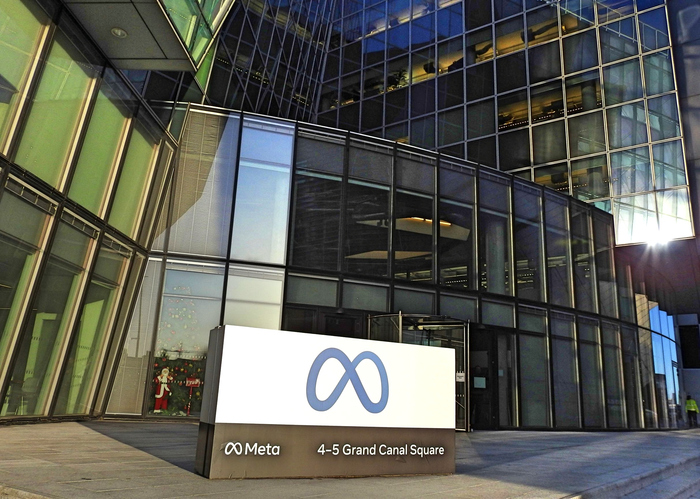What is Securities Fraud? A Comprehensive Overview
Securities fraud is the illegal deception of investors in the stock market, tricking them into making decisions based on false information for the fraudster's gain. This can involve spreading lies about a company or using inside information for personal profit.
June 13, 2025

This information is provided for educational purposes only by Kohn, Kohn & Colapinto and does not constitute legal advice. No attorney-client relationship is created by accessing this content. Laws and regulations may change, and this material may not reflect the most current legal developments. If you believe you have a whistleblower claim, consult a qualified attorney to discuss your specific circumstances.
Securities fraud, or stock fraud, is an umbrella term for deceptive maneuvers employed by brokers, investment firms, and even companies or individuals. These schemes aim to manipulate investors through false information, ultimately causing financial harm for the perpetrator’s personal gain.
How common is securities fraud? To put it into perspective, the SEC secured a hefty $4.949 billion in financial remedies for fiscal year 2023, ranking second highest in its history. The SEC distributed $930 million to harmed investors in the fiscal year 2023, marking the second consecutive year with more than $900 million in distributions.
Whistleblowers (often victims) or insiders with information of securities fraud exceeding $1 million may be eligible for an award from the Securities and Exchange Commission (SEC). Continue reading to get a complete overview of securities fraud, and learn how to blow the whistle if you have original and credible evidence of it happening.
Securities Fraud Meaning
Securities refer to a financial investment product, typically the stock of a company, bonds, or a digital currency; or as the SEC defines it under 15 (U.S. Code § 78c), which outlines the role of commerce and trade in the United States Code:
“The term “security” means any note, stock, treasury stock, security future, security-based swap, bond, debenture, evidence of indebtedness, certificate of interest or participation in any profit-sharing agreement, collateral-trust certificate, preorganization certificate or subscription, transferable share, investment contract, voting-trust certificate, certificate of deposit for a security, fractional undivided interest in oil, gas, or other mineral rights, any put, call, straddle, option, or privilege on any security, certificate of deposit, or group or index of securities (including any interest therein or based on the value thereof), or any put, call, straddle, option, or privilege entered into on a national securities exchange relating to foreign currency, or, in general, any interest or instrument commonly known as a “security”, or any certificate of interest or participation in, temporary or interim certificate for, receipt for, guarantee of, or warrant or right to subscribe to or purchase, any of the foregoing.”
The term “fraud” refers to the deliberate omission or intentions of causing financial harm to said investors. Thus, “securities fraud” may include the exploitation of any one of the above investment vehicles.
While it’s difficult to pinpoint the exact origins of the word securities fraud, the practice itself has a long history. Many would consider Charles Ponzi, the man in which a Ponzi scheme was named after, to be the first real investment fraudster.
However, it is also said that financial fraud can be tracked back to 300 B.C. when Greek merchant Hegestratos took out a large insurance policy known as bottomry: an arrangement in which a shipmaster borrows money using the ship as collateral; the lender is then liable for the ship until the voyage is complete. In Hegestratos story, he planned to sink the boat, keep the loan, and sell the corn on the ship.
However, his plan backfired and he drowned trying to help his crew and passengers escape after being caught in the fraud.
Securities Fraud Examples
There are several common types of securities fraud violations by the Securities and Exchange Commission (SEC) and our attorneys are on the lookout for, which include the following:
Insider Trading
Insider trading is by far one of the most common, and pervasive examples of securities fraud. This type of fraud involves industry “insiders” sharing non-public information about the company that will allow them to make decisions about buying or selling of that company’s stock.
The types of insiders engaging in this illegal activity typically include executives, board members, accountants, or company lawyers. What’s illegal here is the sharing of “non-public information” – once these insiders have made (or prepared to make) their trades, retail investors are left in the wake and often experience losses.
Accounting Fraud
Accounting fraud occurs when an insider deliberately manipulates a company’s financials to make it appear healthier than it actually is. Some tactics often include inflating revenues or hiding debts, falsifying expenses, or pressuring others to “fudge the numbers.” Companies do this to mislead investors, creditors, or the general public, making themselves look positive in order get more investors on board.
Misappropriating Assets
Also known as theft, misappropriating assets occurs when a broker or investment advisor deliberately steals or misdirects investor cash or assets, such as stocks or bonds, into unauthorized accounts. This can include the theft of contributions paid into employer-sponsored retirement plans. This is a huge breach of fiduciary duty, which causes major harm to individuals.
Ponzi Schemes
A Ponzi scheme is an investment schemes that promises future returns on a particular investment, which may or may not be real. The scheme requires a constant flow of new investors to be brought into the scheme for it to succeed. The cash from new investors is used to pay back the original investors, plus their return, which is also fake to make it appear legitimate.
Market Manipulation
Market manipulation occurs when an individual or group of individuals interferes with the natural flow of the market in their favor to make a profit. This could include spreading false information about a company’s performance, including its financial health, or spreading rumors about a pending merger or acquisition. Or something as simple as buying and selling rapidly to increase trading volume, which drives interest (and increases the stock price).
Pump-and-dump Schemes
Pump-and-dump schemes are a type of market manipulation where a fraudster artificially inflates, or “pumps” up the price of a stock or cryptocurrency by heavily promoting it on social media, forums, or online communities such as Discord. When that stock reaches a desired price, they then sell, or “dump” the stock or cryptocurrency quickly, making a profit at the inflated price. Investors who bought the stock are left holding a stock “bag holding” worth much less than its original value.
Offering Unregistered Securities
In the United States, all securities must be registered unless a special exemption applies. Unregistered securities, which are not monitored by the SEC or any other authority, are primed for abuse by fraudsters touting extremely risky investment products. This could anything from an equity interest in a startup business or an unregistered initial offering.
Omitting Material Information
This often involves a broker or financial advisor omitting important information about a company’s health, such as the risks it is facing, or the risks associated with a particular investment. Brokers have a fiduciary responsibility to inform their clients o fall risks associated with an investment, and to omit information can jeopardize the financial health of an investor. Furthermore, if an investor provides false or misleading information about an investment, this also goes against a broker’s or investment advisor’s fiduciary responsibility and could be considered fraudulent.
Unauthorized Trading
This happens when a broker or financial advisor buys or sells securities in a client’s account without their permission. There are many reasons why a broker or financial advisor might due this, such as to manipulate the price of a stock.
Microcap Fraud
Microcap stock fraud targets small, thinly traded companies (microcaps) whose stock prices can be easily manipulated. Fraudsters might use misleading press releases, fake analyst reports, or artificial trading activity to inflate the price for a quick profit.
Boiler Rooms
Boiler rooms are high-pressure sales operations that aggressively push unsuitable investments over the phone. They often target elderly or inexperienced investors with promises of unrealistic returns.
High-Yield Investment Fraud
This involves enticing investors with promises of unusually high returns, often with little to no risk. These schemes can involve various products, but they all share the characteristic of being too good to be true.
Hedge Fund Fraud
While hedge funds themselves are not inherently fraudulent, there have been cases of abuse within the industry. Hedge fund fraud could involve misleading investors about the fund’s strategy or risk profile, or even embezzlement of investor funds.
Foreign Currency Fraud
Fraudsters may exploit the complexities of foreign currency markets to take advantage of investors. Forex fraud can involve rigged currency exchanges, fake investment opportunities, or manipulating forecasts to mislead investors.
Abusive Short Selling
Short selling involves borrowing shares of a stock, selling them, and hoping to repurchase them later at a lower price to return to the lender and pocket the difference. Abuses can occur through manipulating the borrow rate (the fee to borrow shares) or engaging in naked short selling, where someone sells borrowed shares they haven’t secured yet.
Offering Frauds
Initial offering frauds involve the illegal sale of unregistered securities. Fraudsters may create unregistered investment schemes or manipulate offerings to mislead investors about the true nature of the investment.
Cryptocurrency Frauds
The volatility and relative anonymity of the cryptocurrency market make it susceptible to fraudulent activity. Examples include “exit scams” where developers abandon a project after raising funds through an initial coin offering (ICO), or fake cryptocurrency exchanges designed to steal investors’ funds.
Affinity Fraud
Affinity fraud is a specific type of investment fraud that preys on members of identifiable groups, exploiting the trust and camaraderie within the group. The fraudster will present an investment opportunity, often downplaying the risks and exaggerating the potential returns. The money invested goes straight to the fraudster’s pocket, not into any real investment. They may use some of it to pay out initial “returns” to create the illusion of success and keep the scheme going. Eventually, the scheme falls apart when the fraudster can’t find new investors or maintain payouts to existing ones.
Please be aware, this is not an exhaustive list, and new frauds emerge all the time. The SEC cannot spot every instance of securities fraud, which is why whistleblowers and insiders are so important to maintaining the integrity and health of financial markets.
Who Commits Securities Fraud?
There are a wide number of individuals who often perpetrate securities fraud. Here is a breakdown of some of the most common:
- Brokers and Financial Advisors: stockbrokers and financial advisors have a responsibility to have their client’s best interest, providing sound investment advice. However, there are some motivated by greed who might steal from an account or make unauthorized trades for their own profit.
- Brokerages or Investment Advisory Firms: some firms might not acknowledge the violations performed by a broker of their firm; or they themselves may be involved in the market manipulation themselves.
- Corporate Officers: executives or directors of companies who have access to inside information or financial statements.
- Publicly Traded Companies: entire companies can be involved in a fraudulent scheme, where they misrepresent the health of their company to trick investors.
- Unlicensed Sellers: people who are not properly licensed to sell securities, who are typically selling fraudulent investment products.
- Celebrities or Social Media Influencers: there are numerous cases of celebrities and content creators touting bogus investments; some are even paid to promote them.
- Scammers: these are typically boiler room operations using high-pressure sales tactics to shill penny stocks to inexperienced investors promising them guaranteed returns.
These are just a few examples of those who commit securities fraud. The landscape is constantly evolving, and new methods emerge every day. Not everyone is out to cheat investors. However, being aware of the risks of investing can go a long way to protecting you against potential fraud.
Just remember, if an investment sounds too good to be true probably is. Some general tips to stay safe from securities fraud include:
- Be skeptical of unsolicited investment offers
- Do your own research and invest with reputable institutions
- Diversify your investments to avoid overexposure to risk
- Never share your financial information with anyone you don’t trust
- Report any suspicious activity to regulatory agencies
You should always compare any promised return with the returns on well-known stock indexes. Any investment opportunity that claims you’ll receive substantially more than that could be highly risky – or be an outright fraud. If you know of an instance of securities fraud, continue reading to learn more about what you can do to hold fraudulent actors accountable.
Famous Examples of Securities Fraud
Enron Scandal (2001)
The Enron scandal, unfolding in late 2001, exposed a massive accounting fraud at the energy giant Enron. The company used a web of off-the-books partnerships and manipulated financial statements to hide billions in debt and inflate its stock price. This house of cards collapsed when the truth emerged, leading to Enron’s bankruptcy, the largest in U.S. history at the time (over $60 billion in assets).
The SEC launched investigations, and while several high-ranking executives faced criminal charges, the scandal also highlighted the role of its auditor, Arthur Andersen, which was later convicted (then overturned) for obstructing justice by shredding Enron documents.
The Enron case became a cautionary tale of corporate greed, accounting manipulation, and the importance of whistleblowers, with Sherron Watkins, an Enron vice president, raising early red flags about the company’s finances.
Note: Sherron Watkins wrote the forward to founding partner Stephen M. Kohn’s new book Rules for Whistleblowers: A Handbook for Doing What’s Right (Lyons ress, 2023). You can learn more about this book and purchase your copy today. There are several sections covering the SEC Whistleblower Program, with information with Special Rules for Directors, Partners, or Auditors.
Tyco (2000)
In the early 2000s, Tyco International, a leading conglomerate, unraveled under the weight of a massive corporate theft orchestrated by its CEO, Dennis Kozlowski, and CFO, Mark Swartz.
For over a decade, the duo allegedly siphoned off upwards of $600 million through a scheme involving inflated bonuses, unauthorized compensation, and lavish personal expenses charged to the company. The fraudulent activity remained hidden for years with the help of manipulated financial statements and a board of directors unaware of the extent of the abuse.
The scheme finally came to light in 2002, leading to their arrests and a lengthy legal battle. The SEC pursued charges, and both Kozlowski and Swartz served prison time. The Tyco scandal exposed the dangers of unchecked executive power and the importance of strong corporate governance to prevent such abuses.
Adelphia (2000)
In the early 2000s, Adelphia Communications, a cable television company, crumbled due to a family affair gone wrong. John Rigas, the founder and CEO, along with his sons and other family members, were found to have embezzled over $2.3 billion from the company.
Their web of fraud involved hiding massive debts by shifting them off the books, using company funds for personal luxuries like mansions and golf courses, and manipulating financial statements to create the illusion of a healthy company. As the house of cards wobbled, the true state of Adelphia’s finances became impossible to conceal. The company’s stock price plummeted, leading to bankruptcy in 2002.
The SEC stepped in, filing charges against the Rigas family for fraud. John Rigas and his son Timothy received lengthy prison sentences, while Adelphia was forced to pay back millions to defrauded investors. The Adelphia case highlighted the dangers of family control and the importance of independent oversight within a company to prevent financial misconduct.
WorldCom (2000)
In the early 2000s, WorldCom, a telecom giant, infamously orchestrated a massive accounting fraud. Over several years, executives led by CEO Bernard Ebbers cooked the books by misclassifying operating expenses as capital expenditures.
This essentially hid billions in debt and inflated the company’s profits. The scheme unraveled around 2002, with the total amount of misstated earnings reaching a staggering $11 billion, the largest accounting fraud case in U.S. history at that time. The SEC launched an investigation and hit WorldCom with a hefty $2.25 billion settlement, one of the largest ever.
This case shone a light on the weaknesses in corporate accounting and the need for stricter regulations. It also highlighted the crucial role whistleblowers play, with credit going to Cynthia Cooper, a WorldCom internal audit VP who bravely persisted in uncovering the fraud despite pressure to back down.
The Impact of Securities Fraud
In a recent report, it’s estimated that an average of 10% of large publicly traded companies are committing securities fraud each year. This fraud has widespread negative consequences, impacting individual investors, the financial markets, and the overall economy.
It also has a ripple effect, impacting jobs, businesses, and the overall health of the financial system. Not only can securities fraud cause severe financial losses, devastating people’s life savings, retirement funds, and financial security, but it can also erode the trust people have in financial markets, making new investors hesitate to enter.
When fraud impacts investor confidence, it can also lead to extreme volatility where investors pull their cash out of the markets for fear of losing it. This volatility is generally due to market manipulation, such as in a pump-and-dump scheme or insider trading. In such scenarios, nobody really knows the true value of a company, which makes investing difficult.
Reporting Securities Fraud: SEC Whistleblower Awards
Investors who believe they have been a victim of fraud can contact the SEC, FINRA, or their state securities regulator to report fraud (information below).
Major Securities Frauds and SEC Whistleblowing
However, under the SEC’s whistleblower program, which is administered by the Office of the Whistleblower, insiders or victims of a fraud where monetary sanctions exceed $1 million may be eligible for an award and protection from the Securities and Exchange Commission (SEC).
These awards are paid from the investor protection fund, established by Congress. This fund is financed entirely through the monetary sanctions paid to the SEC by violators.
To become eligible for an award, whistleblowers must voluntarily provide original, timely, and credible information leading to a successful enforcement action. Anybody, US or foreign can become eligible for an award If the fraud involves the securities of a publicly traded company.
The SEC offers whistleblower protection from retaliation and preserves the confidentiality of whistleblowers and permits anonymous filings. To be eligible for an award whistleblower must file a claim with the help of an attorney.
Seeking Legal Assistance
Our team is comprised of the world’s most renowned SEC whistleblower attorneys, including Stephen M. Kohn, David Colapinto, and former SEC commissioner and acting chair Allison Herren Lee. If you’re a victim of securities fraud or an insider with information of a securities fraud scheme, get in touch with our attorneys today for a free and confidential consultation. There is no whistleblower case too complex for our team.
Our Firm’s Cases

Environment & Human Rights Violations Exposed
Oil industry’s environmental crimes and cover-up in Colombia have been exposed. Whistleblower Andrés Olarte Peña, with the support of his attorneys Kohn, Kohn & Colapinto and the damning evidence compiled in the Iguana Papers, is calling for an investigation into Ecopetrol and its executives by the Colombian government and the U.S. Securities and Exchange Commission.

$30 Million Award
Protecting the confidentiality of Wall Street whistleblowers is among the most important breakthroughs in federal whistleblower law. Under the Dodd-Frank Act, whistleblowers can file anonymous cases, and everything about their case, including who they sued, remains secret.

$13.5 Million Award
Our firm represented an anonymous whistleblower, who on May 17, 2021, received a whistleblower award of almost $13.5 million. The SEC has issued more than $31 million in whistleblower awards related to this case.

![Reporting Recordkeeping Failures To The Sec [2025 Guide]](https://kkc.com/wp-content/uploads/2025/01/Recordkeeping-Failures.jpg)




